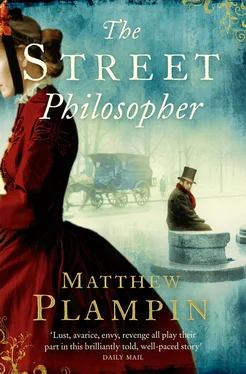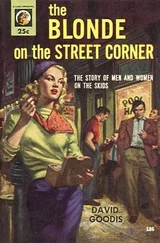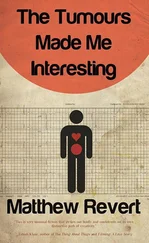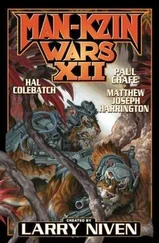MATTHEW PLAMPIN
This novel is entirely a work of fiction. The names, characters and incidents portrayed in it are the work of the author’s imagination. Any resemblance to actual persons, living or dead, events or localities is entirely coincidental.
HarperCollins Publishers Ltd. 1 London Bridge Street London SE1 9GF
www.harpercollins.co.uk
First Published in Great Britain by HarperCollins Publishers 2009
Copyright © Matthew Plampin
MAP © John Gilkes, 2008
Matthew Plampin asserts the moral right to be identified as the author of this work
A catalogue record for this book is available from the British Library
All rights reserved under International and Pan-American Copyright Conventions. By payment of the required fees, you have been granted the non-exclusive, non-transferable right to access and read the text of this ebook on-screen. No part of this text may be reproduced, transmitted, down-loaded, decompiled, reverse engineered, or stored in or introduced into any information storage and retrieval system, in any form or by any means, whether electronic or mechanical, now known or hereinafter invented, without the express written permission of HarperCollins ebooks
HarperCollins Publishers has made every reasonable effort to ensure that any picture content and written content in this ebook has been included or removed in accordance with the contractual and technological constraints in operation at the time of publication
Source ISBN: 9780007272433
Ebook Edition © MARCH 2009 ISBN: 9780007310043
Version: 2017-05-04
For my father, who kept on about it.
It is unspeakable, godless, hopeless. I am no longer an artist interested and curious, I am a messenger who will bring back word from the men who are fighting to those who want the war to go on forever. Feeble, inarticulate will be my message, but it will have a bitter truth, and may it burn their lousy souls.
Paul Nash, Letter from Passchendaele,
October 1917
Title Page Copyright Dedication EpigraphMap Crimean Peninsula September 1854 Chapter One Chapter Two Chapter Three Chapter Four Chapter Five Manchester May 1857 Chapter One Chapter Two Chapter Three The Valley Of The Alma, Crimean Peninsula September 1854 Chapter One Chapter Two Chapter Three Chapter Four Chapter Five Manchester May 1857 Chapter One Chapter Two Chapter Three Chapter Four Before Sebastopol, Crimean Peninsula October–November 1854 Chapter One Chapter Two Chapter Three Chapter Four Chapter Five Chapter Six Chapter Seven Chapter Eight Manchester May 1857 Chapter One Chapter Two Chapter Three Chapter Four Chapter Five Before Sebastopol, Crimean Peninsula January 1855 Chapter One Chapter Two Chapter Three Chapter Four Chapter Five Chapter Six Chapter Seven Manchester June 1857 Chapter One Chapter Two Chapter Three Chapter Four Chapter Five Before Sebastopol, Crimean Peninsula June 1855 Chapter One Chapter Two Chapter Three Chapter Four Chapter Five Chapter Six Chapter Seven Chapter Eight Chapter Nine Chapter Ten Manchester June 1857 Chapter One Chapter Two Chapter Three Chapter Four Chapter Five Chapter Six At Seajuly 1857 Chapter One Keep Reading Author’s Note About the Author About the Publisher
Crimean Peninsula September 1854
1
Kitson’s well-worn boots crunched through the shingle as he walked down towards the shore. It was a cold, unwelcoming afternoon. The sky was low and slate-grey, and the waters of the bay churned with a heavy swell. Sea birds croaked dismally as they hung, wings outstretched, on the brisk wind. Most of the men who filled the landing zone were in uniform, but there were enough ragged-looking civilians among them for Kitson to stride past without remark. Reaching a small rise in the stony beach, he paused to scratch his beard and take stock of the scene around him.
On this, the third day of the invasion, it was the turn of the Earl of Cardigan’s Light Brigade to disembark. Kitson pulled a pocketbook and pencil from his shabby, faded frock-coat. Squinting, he peered out at the rows of troop transports and frigates anchored in the deeper waters, and attempted to make out their names, jotting down those he could see. There were so many vessels in the bay that the horizon was obscured by a dense forest of masts, funnels and rigging. The echoing blasts of their steam horns drifted over to where he stood scribbling intently into his book.
Flotillas of long rowing boats were ferrying soldiers from the transport ships. Teams of blue-jacketed sailors, seemingly impervious to the cold, waded out into the surf to drag the boats’ prows up onto the beach. Landing planks were thrown down, and hussars poured out, their scabbards held over their heads to avoid any chance of a freak spray or splash rusting the blades within. Against the dull, washed-out tones of the afternoon, their uniforms seemed intensely colourful, a vivid combination of rich blacks, glowing reds and acid yellows. The blue-jackets stared as the cavalrymen calmly returned their sabres to their belts and strolled slowly inland as if the Crimea were already theirs. Kitson scanned the crowds of plush busbies and brocade-encrusted jackets, noting the regiments for his report.
The breeze changed direction, and a faint, inhuman shrieking reached the correspondent’s ears. He stopped writing mid sentence. A bone-white horse was dangling over the side of one of the larger iron-screw steamers, suspended from a small crane. Leather straps were fastened around the creature’s torso, its legs hanging limply down as it cried out in terror. Beneath it, rocking precariously on the waves, was a crude raft, made from several rowing boats lashed together. The squat black form of an artillery piece already sat awkwardly upon it, tied down with rope; the makeshift platform was unbalanced by its weight, and tipped drunkenly with the rise and fall of the sea.
After a short, tense descent, the horse’s hooves touched the raft. Several sailors reached out at once, unfastening the straps and patting the beast’s neck and muzzle reassuringly. The horse slipped on the shining planks, but was quickly on its feet again, nostrils flaring as it snorted with distress. Already, the next was on its way down, a chestnut this time, whinnying loudly as it came; and before long, three warhorses stood upon the raft as it floated unsteadily beneath the overcast sky.
Disaster was so inevitable, and so familiar, that the blue-jackets greeted it with weariness rather than alarm. One of the horses became tangled up in the cords holding down the gun and, immediately panicking, started to kick and flounder, screaming as it did so. The others promptly reared up, shaking off the men who tried to settle them, adding their voices to what was soon a piercing chorus. With a sharp whipping sound, straining ropes started to snap. A second later the gun toppled overboard, pulling the horse caught up in the ropes after it. Both vanished instantly into the murky brown-green water. The raft lurched upwards on the side where the lost gun had stood, causing the two remaining horses to fall, and then slide off messily into the sea.
Back on the beach, Kitson winced and made a quick entry in his pocketbook.
A few other rafts, similarly troubled, bobbed and span among the looming iron-clads. Some of the transport captains, seeing the mayhem below, had decided to dispense with any attempt at conveying the horses to shore and were simply having them pushed from the deck, leaving it to the beasts themselves to find their way to the beach. Kitson watched them tumble down the sides of the tall ships into the waves, legs kicking wildly, landing in an explosion of foam. He tried to trace the dots of their heads as they swam for the shore. Some of them he lost; others didn’t seem to be moving at all, so slow was their progress. His eyes started to ache with the effort.
Читать дальше











